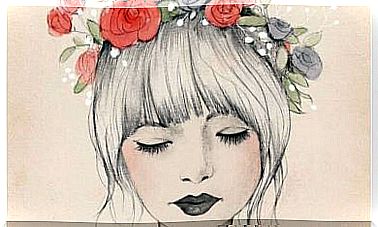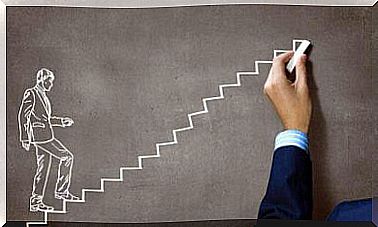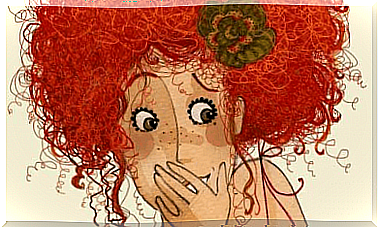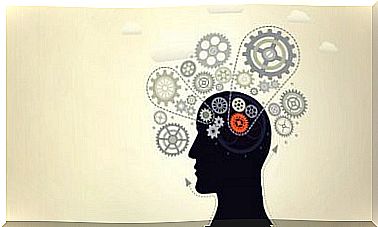Why Do I Suffer From Anxiety At Night?
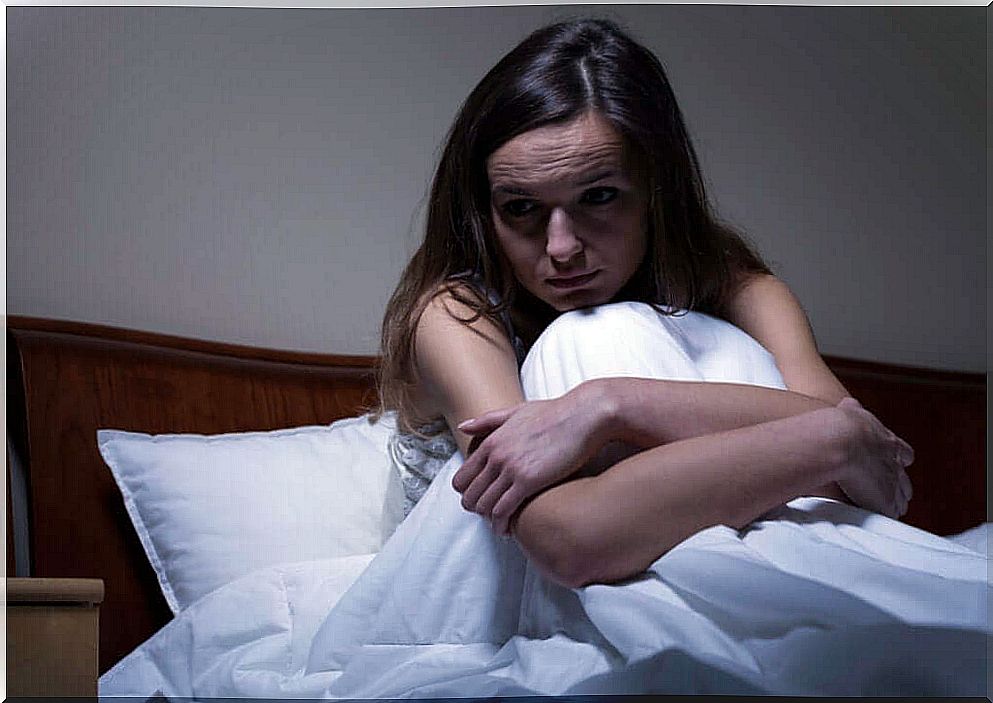
Do you suffer from anxiety at night? Anxiety is a disorder that affects many people. Its causes and manifestations can also be very diverse.
Some people experience more anxiety in the morning or throughout the day. However, it is common for those who suffer from anxiety at night to also suffer from it during the day, becoming more acute as dusk approaches.
The mind tends to ruminate over thoughts, causing tension to build up. Anxiety often ends up being an obstacle to rest. As a result, the person becomes more anxious during the day and gets stuck in a harmful vicious cycle.
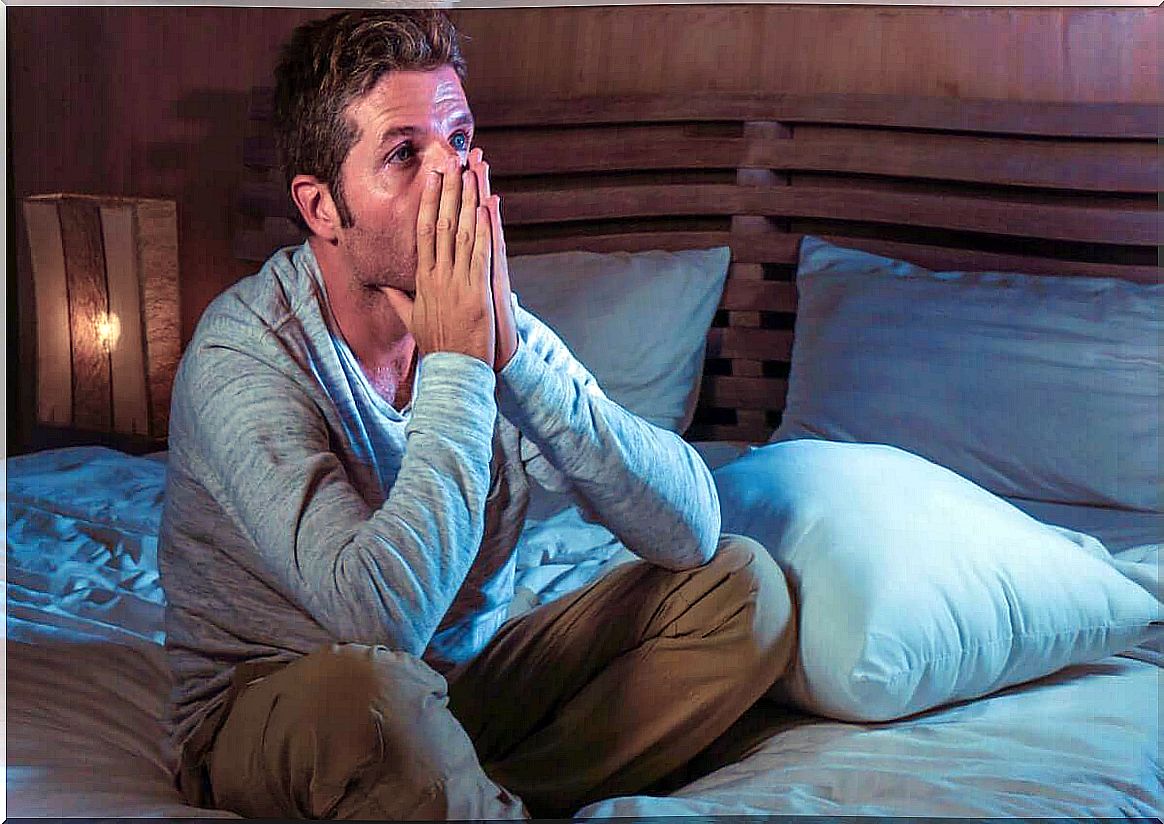
Anxiety
The term “anxiety” refers to a symptom, personality trait or disorder. Anyway, it is’ a natural mechanism that we helped e to adapt, putting us on alert for a possible threat. So it allows us to focus and face the obstacles that we encounter in life.
In the case of nonadaptive anxiety, we experience it disproportionately to the actual threat posed by the stimulus. In other words, feeling it in front of a lion in the middle of the jungle – adaptive anxiety – is not the same as in everyday life because we feel overwhelmed – non-adaptive anxiety.
In addition, anxiety causes an alteration in psychological and physiological functioning when it is recurrent. It can therefore have serious consequences on health. Its main symptoms are:
- nervousness
- muscle tension
- fear
- increased heart rate
- hyperventilation
- sweat
- tremors
- dizziness
- tired
At the cognitive and behavioral level, there are also difficulties in concentrating and controlling concerns, sleep problems as well as the need to avoid the stressful situation. There are many factors that increase anxiety levels at the end of the day:
- Many people experience anxiety because of the stress they experience in one or more areas of their life (personal or professional). They then continue to think at the end of the day about the stressors encountered during the day. This is why anxiety increases at night.
- We tend to be less busy at night. It gives the mind time to think more about everything that concerns us. During the day, on the other hand, the tasks we have to accomplish keep us away from negative thoughts.
- Anxiety works a lot by association. It is enough that we have suffered from anxiety for one or two nights, and when the time comes, we are afraid or worried that it will happen again. Unfortunately, this increases the likelihood of a situation happening again.
- Some people experience physical pain or other discomfort at night. This, combined with the lack of distractive stimuli, leads them to interpret them as negative. Anxiety and difficulty falling asleep increase.
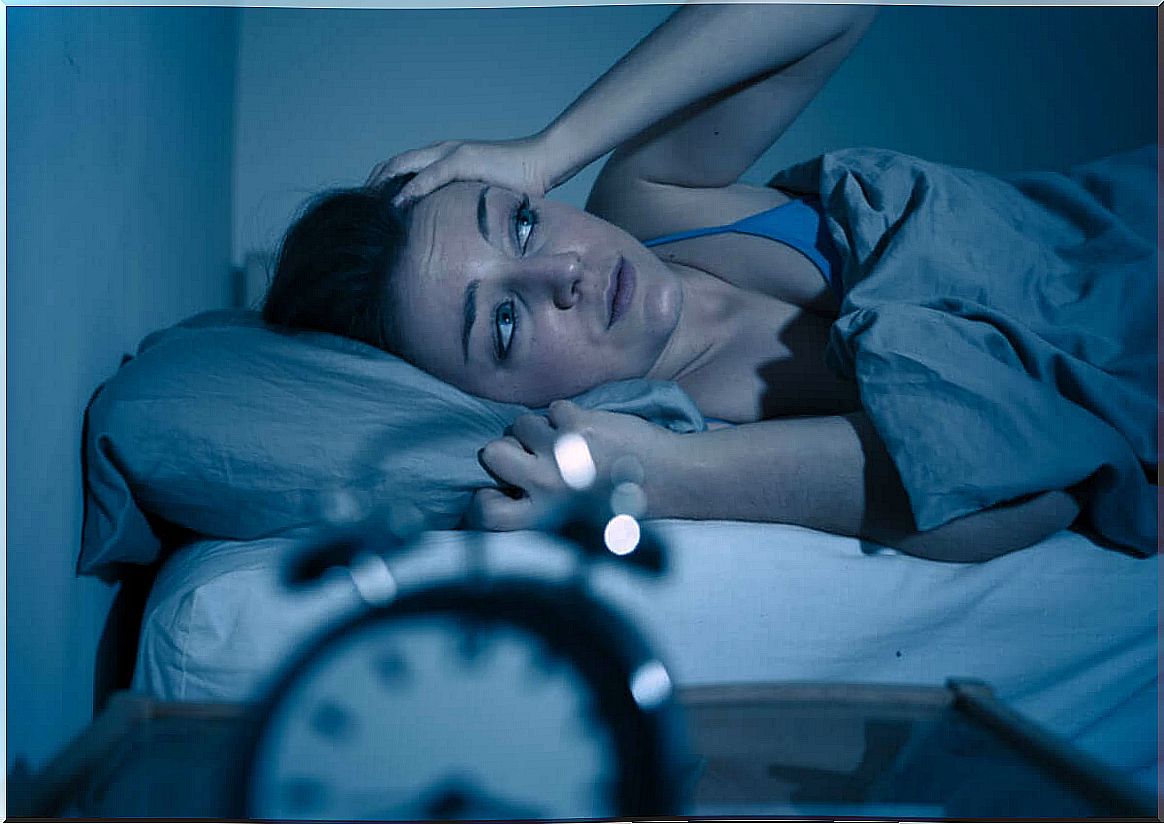
How to avoid anxiety at night?
As with any other type of anxiety, the key is to recognize that you have a problem and to maintain a change-oriented attitude. It is quite easy, with some effort and the right tools, to overcome anxiety.
The best option, however, is to call in a professional psychologist. This is especially true if you do not know the instructions to follow or if you need outside help to remedy it.
You may want to try to alleviate it on your own before seeking professional help. You will need to show motivation and perseverance. Here are some tips that will help you significantly reduce anxiety at night:
- Fai re exercise. Exercise has many psychological and mental benefits. In particular, it improves mood, as it helps release neurotransmitters such as serotonin. It also reduces the presence of cortisol, the stress hormone. It is then advisable to play sports in the morning or early in the afternoon.
- Pren dre care of his diet. Every healthy habit makes us feel better. Eating well is one of them. In this sense, the meals with which we start and end the day are particularly important.
- Control r stimulant use. Consuming coffee, theine or nicotine alters the physiological system by increasing heart rate and sleep cycles. We therefore advise people who suffer from anxiety at night not to consume it, especially in the evening or at night.
- Have a fixed sleep schedule. Anxiety at night fosters a vicious cycle that is made worse by the inability to sleep. It is therefore important to maintain a good sleep routine.
- Sleep hygiene. This involves keeping the room clean and comfortable, using it only for sleeping and resting, and following a ritual before sleeping. All of this promotes good sleep.
- That is why we also recommend not to use electronic devices before going to sleep. The screens of these devices alter cortisol levels, causing more stress and insomnia.
Anxiety at night can be very distressing and problematic. However, following these good tips and seeking professional help can resolve the issue quickly. The main thing is to be aware of the problem and take care of yourself.




